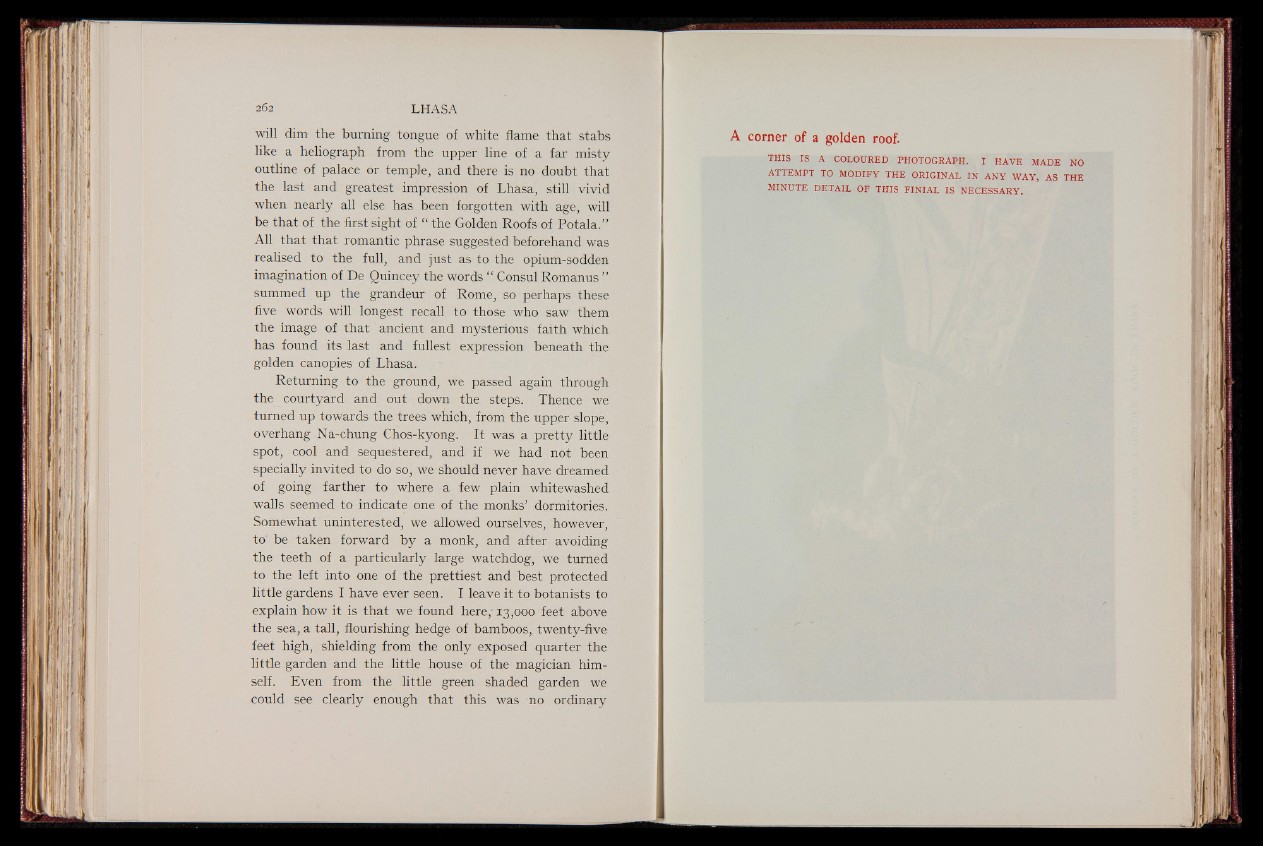
will dim the burning tongue of white flame that stabs
like a heliograph from the upper line of a far misty
outline of palace or temple, and there is no doubt that
the last and greatest impression of Lhasa, still vivid
when nearly all else has been forgotten with age, will
be that of the first sight of “ the Golden Roofs of Potala.”
All that that romantic phrase suggested beforehand was
realised to the full, and just as to the opium-sodden
imagination of De Quincey the words “ Consul Romanus ”
summed up the grandeur of Rome, so perhaps these
five words will longest recall to those who saw them
the image of that ancient and mysterious faith which
has found its last and fullest expression beneath the
golden canopies of Lhasa.
Returning to the ground, we passed again through
the courtyard and out down the steps. Thence we
turned up towards the trees which, from the upper slope,
overhang Na-chung Chos-kyong. It was a pretty little
spot, cool and sequestered, and if we had not been
specially invited to do so, we should never have dreamed
of going farther to where a few plain whitewashed
walls seemed to indicate one of the monks’ dormitories.
Somewhat uninterested, we allowed ourselves, however,
to’ be taken forward by a monk, and after avoiding
the teeth of a particularly large watchdog, we turned
to the left into one of the prettiest and best protected
little gardens I have ever seen. I leave it to botanists to
explain how it is that we found here,* 13,000 feet above
the sea, a tall, flourishing hedge of bamboos, twenty-five
feet high,, shielding from the only exposed quarter the
little garden and the little house of the magician himself.
Even from the little green shaded garden we
could see clearly enough that this was no ordinary
A corner of a golden roof.
THIS IS A COLOURED PHOTOGRAPH. I HAVE MADE NO
At t e m p t t o m o d i f y t h e o r ig in a l in a n y w a y , a s t h e
MINUTE DETAIL OF THIS FINIAL IS NECESSARY.